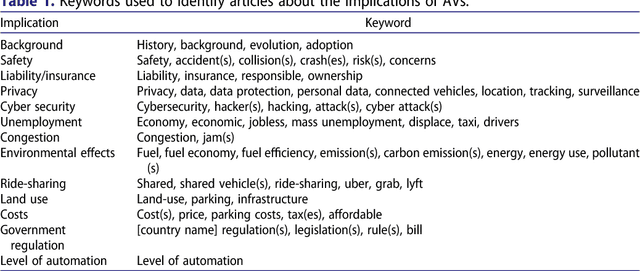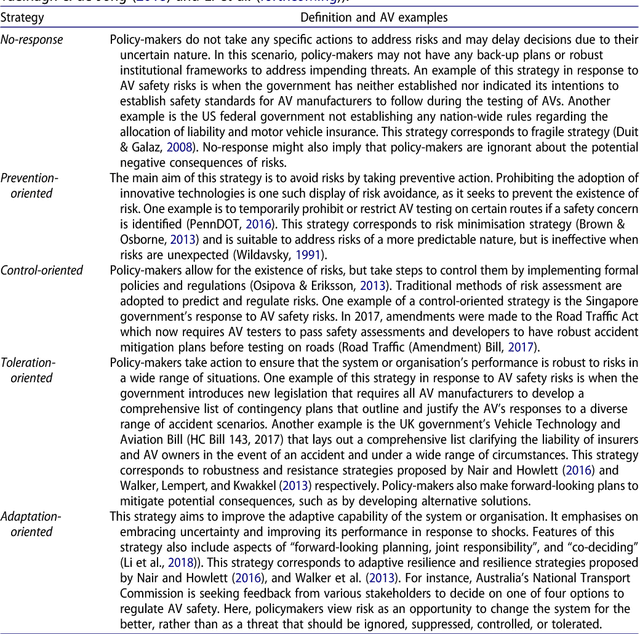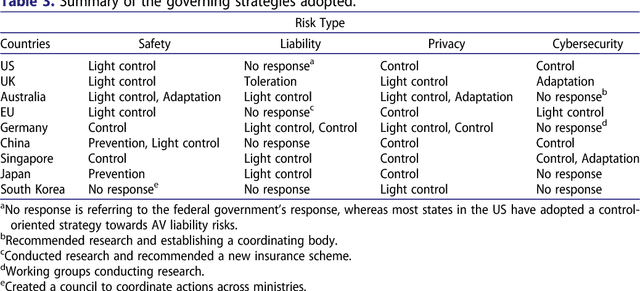Governing autonomous vehicles: emerging responses for safety, liability, privacy, cybersecurity, and industry risks
Paper and Code
Jul 16, 2018


The benefits of autonomous vehicles (AVs) are widely acknowledged, but there are concerns about the extent of these benefits and AV risks and unintended consequences. In this article, we first examine AVs and different categories of the technological risks associated with them. We then explore strategies that can be adopted to address these risks, and explore emerging responses by governments for addressing AV risks. Our analyses reveal that, thus far, governments have in most instances avoided stringent measures in order to promote AV developments and the majority of responses are non-binding and focus on creating councils or working groups to better explore AV implications. The US has been active in introducing legislations to address issues related to privacy and cybersecurity. The UK and Germany, in particular, have enacted laws to address liability issues, other countries mostly acknowledge these issues, but have yet to implement specific strategies. To address privacy and cybersecurity risks strategies ranging from introduction or amendment of non-AV specific legislation to creating working groups have been adopted. Much less attention has been paid to issues such as environmental and employment risks, although a few governments have begun programmes to retrain workers who might be negatively affected.
 Add to Chrome
Add to Chrome Add to Firefox
Add to Firefox Add to Edge
Add to Edge